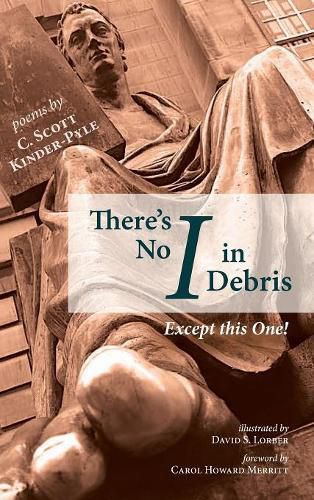Readings Newsletter
Become a Readings Member to make your shopping experience even easier.
Sign in or sign up for free!
You’re not far away from qualifying for FREE standard shipping within Australia
You’ve qualified for FREE standard shipping within Australia
The cart is loading…






This title is printed to order. This book may have been self-published. If so, we cannot guarantee the quality of the content. In the main most books will have gone through the editing process however some may not. We therefore suggest that you be aware of this before ordering this book. If in doubt check either the author or publisher’s details as we are unable to accept any returns unless they are faulty. Please contact us if you have any questions.
There Is No I in Debris is a walking and talking contradiction. Of course, as a matter of fact, the English letter is plain to see. If, however, the reader would care to acknowledge the fluid nature of that self who processes experience with images and words, the effect of these poems will be to expose the mysterious vulnerability of that authentic person who so often hides behind various familial and societal roles. The poet here posits a crisis, especially for clergy and various leaders of the institutional church in the twenty-first century. We are now entering a postmodern field of debris, in which the fragments of one’s identity must be confronted amid the mere artifice of Christendom.
$9.00 standard shipping within Australia
FREE standard shipping within Australia for orders over $100.00
Express & International shipping calculated at checkout
This title is printed to order. This book may have been self-published. If so, we cannot guarantee the quality of the content. In the main most books will have gone through the editing process however some may not. We therefore suggest that you be aware of this before ordering this book. If in doubt check either the author or publisher’s details as we are unable to accept any returns unless they are faulty. Please contact us if you have any questions.
There Is No I in Debris is a walking and talking contradiction. Of course, as a matter of fact, the English letter is plain to see. If, however, the reader would care to acknowledge the fluid nature of that self who processes experience with images and words, the effect of these poems will be to expose the mysterious vulnerability of that authentic person who so often hides behind various familial and societal roles. The poet here posits a crisis, especially for clergy and various leaders of the institutional church in the twenty-first century. We are now entering a postmodern field of debris, in which the fragments of one’s identity must be confronted amid the mere artifice of Christendom.